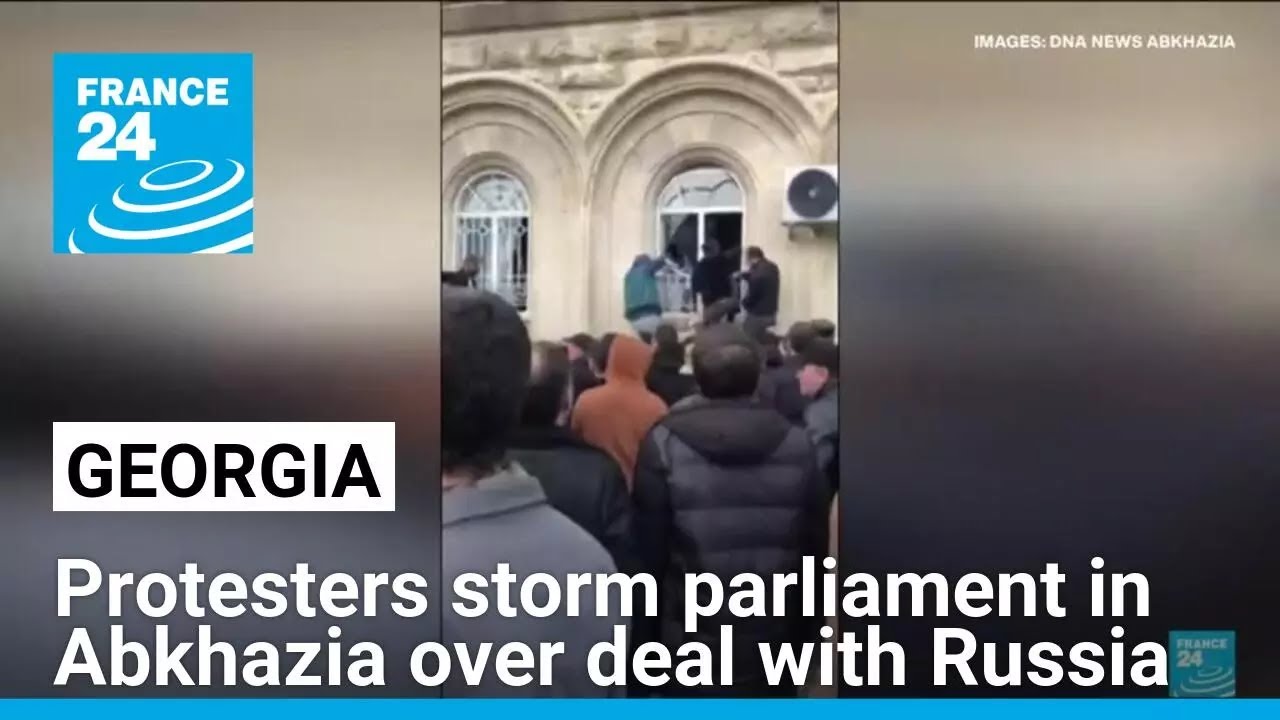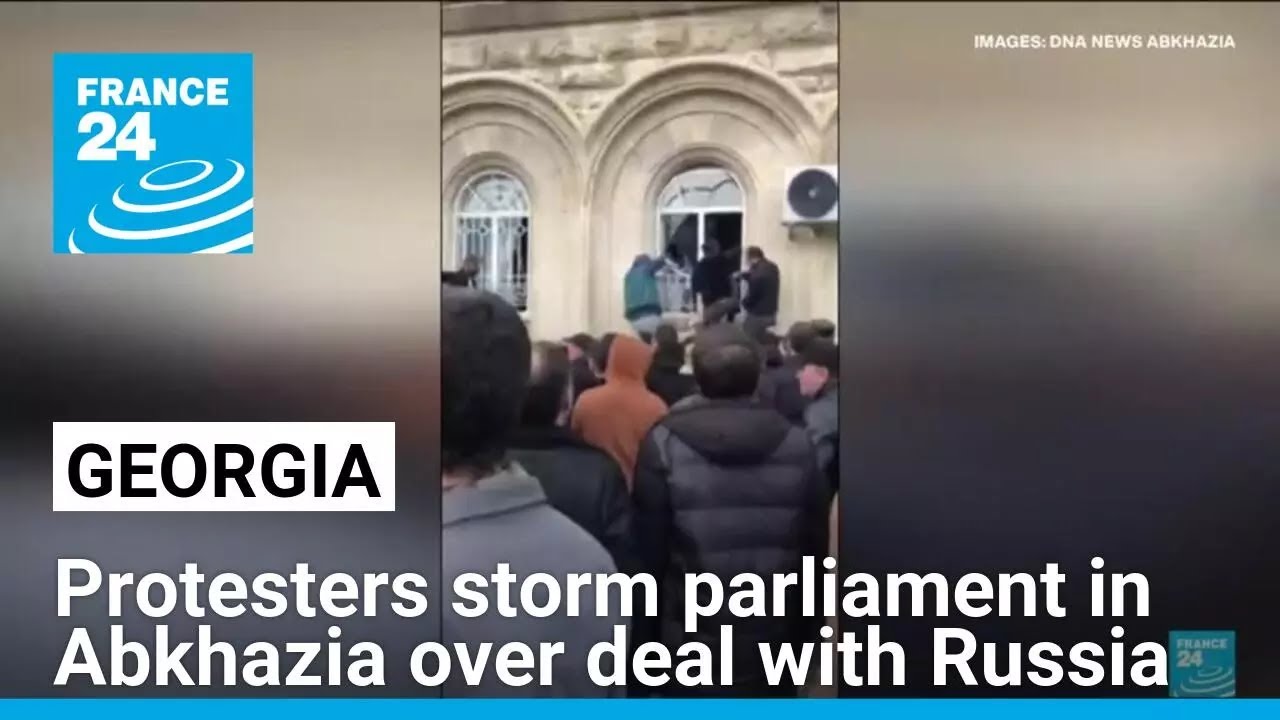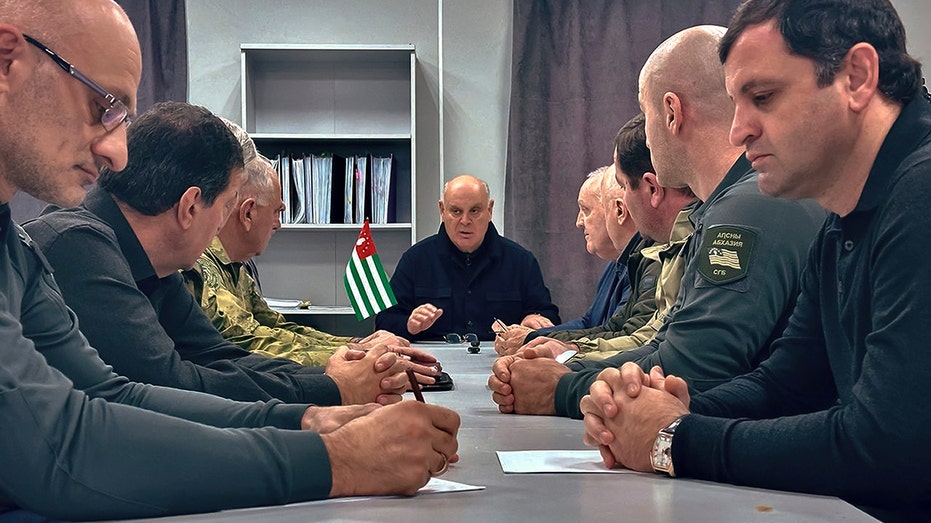
Turmoil in Abkhazia: Resignation of Separatist Leader Amid Protests
By [Your Name]
Date: [Today’s Date]
Abkhazia’s Political Landscape Shifts
In a dramatic turn of events, the separatist leader of Georgia’s breakaway region of Abkhazia, Aslan Bzhania, resigned on Tuesday, following several chaotic days of unrest. Tensions flared as citizens, dissatisfied with new government policies that would permit Russian citizens to purchase property in the region, stormed key government buildings. The unrest was marked by violent clashes, resulting in at least 14 injuries amongst protesters and police.
Triggering Protests: New Property Policies
The protests erupted on Friday, as demonstrators expressed their outrage towards the policy allowing property purchases by Russians. The move was perceived as a threat to the region’s autonomy and sparked fears among Abkhazia’s 245,000 residents about becoming a client state of Moscow. As the situation escalated, protesters called for the resignation of Bzhania, who has maintained close ties with the Russian government.
Escalation and Confrontation with Law Enforcement
Initial demonstrations turned violent when protesters breached government buildings, ultimately leading to clashes with law enforcement. Protesters utilized a truck to break through the gates of the parliament building, and chaos ensued as some demonstrators threw rocks at police, who retaliated with tear gas in an effort to disperse the crowd.
Earlier that week, the arrest of five opposition leaders during related protests had already heightened tensions. The detentions provoked a significant public outcry, leading to further demonstrations and blockades of key bridges leading to the capital, Sukhumi.
Negotiation and Resolution
After several days of stand-off, a breakthrough was finally achieved on Tuesday, as reported by Russian media. An agreement was struck after extensive negotiations lasting over nine hours, leading to Bzhania’s resignation. In return, the opposition forces agreed to vacate the government buildings they had occupied, marking a significant victory for the demonstrators.
Following the resignation, Abkhazia’s parliament swiftly approved the decision, and Vice President Badra Gunba stepped in as the acting president. Bzhania had previously indicated that he might retract his resignation if the protesters did not relinquish control of the buildings, but the negotiations effectively avoided that scenario.
Understanding Abkhazia’s Complicated Context
Abkhazia’s history is fraught with complexities surrounding separatism and geopolitical tensions. The region gained independence from Georgia in 1993 following a conflict, and subsequent military actions in 2008 further entrenched its separation as Russian forces solidified control over the area. Despite Moscow’s recognition of Abkhazia’s independence, many locals are apprehensive about the region’s increasing dependency on Russian governance and influence.
The Economic Underpinnings of Protest
The picturesque region, known for its breathtaking mountains and the Black Sea coastline, has long been a favored getaway for Russian tourists. This tourism boom has spurred significant demand for vacation homes, a factor contributing to the push for the controversial property purchase policy. However, the policy was met with fierce opposition, as many residents worried about the implications for local ownership and the preservation of their cultural identity.
Future Implications for Abkhazia
The political turmoil in Abkhazia raises essential questions about the region’s future direction and stability. The outcome of Bzhania’s resignation reflects the broader struggle for control amidst rising dissatisfaction among the population. As Vice President Gunba assumes the role of acting president, questions remain regarding his leadership and potential responses to ongoing discontent.
While the immediate danger may have subsided following the resolution of the protests, the underlying issues concerning property rights, Russian influence, and national identity persist as critical challenges for both the new administration and the residents of Abkhazia.


















